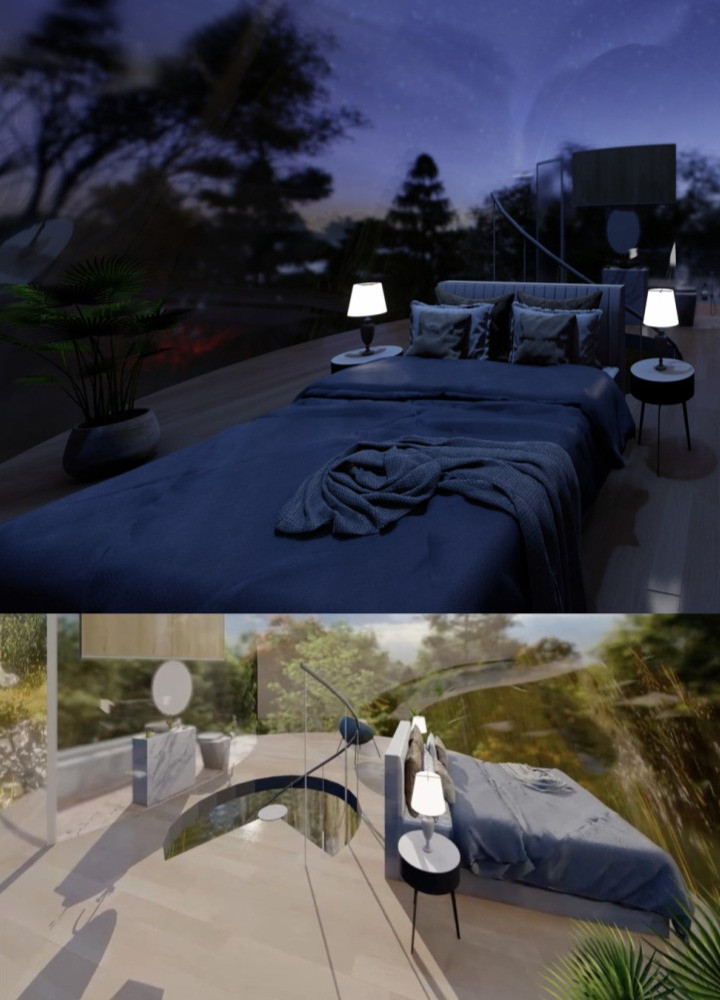5 key facts about this project
### Overview
Located within a harmonious natural setting, "Gaia - The Biosphere" is an architectural design by Fabien Beckers, which seeks to redefine contemporary living through innovative integration of nature and technology. The structure, resembling an elongated egg, exemplifies a forward-thinking approach to residential architecture, emphasizing adaptability and a deep connection to the surrounding environment. The intent is to create a viable habitat that breaks away from conventional building norms while exploring sustainable living solutions.
### Material Utilization and Technological Integration
The primary material utilized in Gaia's construction is glass, selected for its transparency and aesthetic qualities, fostering a strong visual connection to the outdoor landscape. Equipped with photovoltaic capabilities, the glass panels are designed to harness solar energy, reducing the building's carbon footprint and enhancing energy independence. Additionally, the incorporation of water collection systems within the glass framework further promotes sustainability by addressing essential resource needs without reliance on traditional supply chains.
The design also features advanced smart home technology, enabling the glass panels to function as interactive displays customized to the inhabitants' preferences. This adaptability enhances user experience by providing a high degree of personalization. Furthermore, the circular form of Gaia facilitates natural air circulation, with operable glass panels improving air quality and fostering dynamic interactions with the external environment.
### Functional Layout and Aesthetic Characteristics
The interior of Gaia is characterized by multi-use spaces that prioritize functionality and flow. The design adapts to varying light conditions throughout the day, creating a dynamic atmosphere that enhances the living experience. The exterior interacts with the landscape, reflecting the changing colors and light, which contributes to the building's ethereal quality. This thoughtful integration of aesthetics and practicality illustrates a cohesive vision for a modern, sustainable living environment.




















































